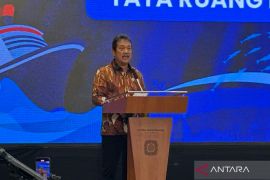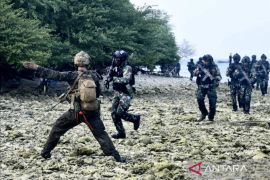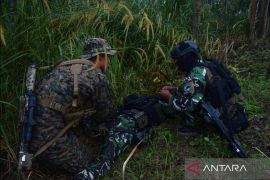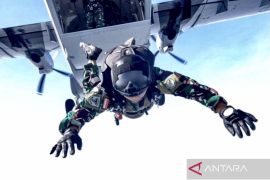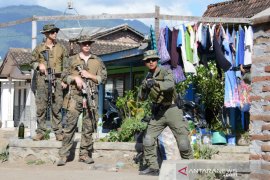Staff Sergeant Frank Wuterich overreacted in orders he gave his squad after seeing the mangled body of a comrade who had been killed in a roadside bombing in the Iraqi town of Haditha on November 19, 2005.
"That image influenced the accused's thinking that day," said prosecutor Major Nicholas Gannon in an opening statement at the start of Wuterich`s month-long court martial in California.
Wuterich, who had no previous combat experience, sent his men to hunt for insurgents in several houses following the bombing that killed 20-year-old Lance Corporal Miguel Terrazas and injured two other US troops.
Gannon played excerpts from a 2007 CBS "60 Minutes" interview in which Wuterich told reporter Scott Pelley that he ordered his men to "shoot first and ask questions later" when they entered the first house November 19, 2005.
Wuterich said he had heard gunshots coming from the area of the houses.
"I didn't want my Marines to check for weapons first; I told them what to do and they did a good job," Wuterich said, adding: "I had to make sure than none of the rest of my guys died or got killed."
Six people were killed in that house, most of them shot in the head, including women and children huddled in a bedroom.
In all, 19 people were killed in several houses along with five men who pulled up near the scene in a car, sparking one of the most controversial criminal cases involving US forces during the nearly nine-year-long Iraq war.
The victims included 10 women or children killed at point-blank range.
The other seven Marines charged in the case have been exonerated through various legal rulings, fueling anger in Iraq, where authorities had pushed for US troops to be subject to Iraqi justice before the US pullout in December.
Defense lawyer Haytham Faraj said Haditha was "abuzz with insurgents" at the time, adding: "There was no intent to do anything wrong, (Wuterich's) intent was to do the mission he was assigned to do."
"When you watch the entire "60 Minutes" interview, Wuterich will say 'I'm responsible for my unit's actions. I regret the loss of life; my squad acted consistent with what was required of them,'" said Faraj.
Government witness Colonel David Mendelson testified that Wuterich spoke to them willingly about the Haditha killings during an informal fact-finding mission, even though he was given the opportunity to speak with a lawyer.
Wuterich was forthcoming and admitted to telling his men to "shoot first and ask questions later," said Mendelson, adding that the comment was "telling and troubling, but brought clarity to the situation."
The Marine jury of four officers and four enlisted men, ranging in rank from gunnery sergeant to lieutenant colonel, will decide Wuterich's fate at Camp Pendleton. All of the jurors have done tours of duty in Iraq.
Wuterich, 31, has pleaded not guilty to nine counts of voluntary manslaughter, along with charges of dereliction of duty and assault, for his role in the deaths of the Iraqis.
If convicted of all the offenses at the month-long trial, he could be sentenced to more than 150 years in prison.
On Tuesday the prosecution plans to call as witness Lance Corporal Stephen Tatum, a former squad member who was given full immunity when charges were dropped against him in 2008.
Wuterich remains on active duty at Camp Pendleton while awaiting resolution of his case. (SYS)
Editor: Ade P Marboen
Copyright © ANTARA 2012
